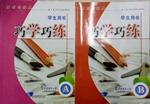题目内容
They say that the real marathon begins at 35 kilometers — the rest is just a warm up. And sure enough, in 2009, at around the 36 kilometer point of the Beijing Marathon I experienced what runners call “hitting the wall”. I had been doing well until that point, but suddenly I felt a sharp pain in my leg. My pace slowed down dramatically and every brain cell in my head seemed to be screaming “stop!!!”
The last 5 kilometers were not fun; in fact, they were really hard work. Keeping motivated to run those last few kilometers was one of the hardest things I had ever done. But that is what makes running a marathon such a rewarding experience — if it were easy everyone would do it.
????????????? I have to admit it is sometimes not even easy to find the motivation to get out of bed, pull on your running shoes and head out into the morning to go for another run. These last two weeks of training for the Muztagata climb have been a little tough. I have been following my training plan for about three months but now I find that my original enthusiasm (热情) has all been used up. Day after day of going to the gym is beginning to wear me down and there still seems so much longer to keep this up. I have begun to doubt that I am actually making any progress or getting any fitter and even thought that I might be going backwards!
These are all very common experiences for people who are working towards challenging, longer term goals and I have learned to recognize these “highs” and “lows” in my energy and enthusiasm. Over the years I have learned a number of tricks that help me to deal with the days when my early motivation seems to have abandoned me for good.
1.Many runners say that the real marathon begins at 35 kilometers because it is at this point that __________.
A. runners begin to enjoy running the marathon race
B. runners are worn out as if they are breaking down
C. the rest part is just the preparation for the race
D. the race is a rewarding experience for runners
2.When people are working extremely hard towards challenging, _________.
A. they can keep themselves motivated all the time
B. they will never hesitate to continue carrying out their plan
C. they sometimes feel as if they stop making progress
D. they will fail to keep their spirits up
3.What is the author going to talk about in the following passage?
A. How to get trained.????????????? ????????????? ????????????? ????????????? ?????????????
B. Tips for becoming a marathon runner.
C. How to meet challenges. ????????????? ????????????? ???????
D. Tips for keeping motivation high.
1.B
2.C
3.D?????????????
【解析】
试题分析:文章大意:中国谚语说,“千里之行,始于足下”作者通过亲身体验,得出时间辛苦努力却不见成效难免会令人气馁,我们了解到将任务分解为多个更为切近的目标可有效地避免你因目标过于宏伟而手足无措。
1.B细节理解题。根据下文作者自己的亲身经历可知,在此时马拉松运动员已经筋疲力尽,故可知答案。故B正确。
2.C细节理解题。根据文章第三段及最后一句I have begun to doubt that I am actually making any progress or getting any fitter and even thought that I might be going backwards!可以得出答案。故C正确。
3.D推理判断题。根据最后一段Over the years I have learned a number of tricks that help me to deal with the days when my early motivation seems to have abandoned me for good.可知作者下面一段将讲述保持高动机的建议。故D正确。
考点:考查说明文阅读

 巧学巧练系列答案
巧学巧练系列答案 课课练江苏系列答案
课课练江苏系列答案A traveller was staying in an Egyptian village. One day, she held up her camera to take pictures of the children. Suddenly the young ones began to shout at her. The traveller's face turned red and she apologized to the head for what she was doing, and told him she had forgotten that people in some places believed a person would lose his soul(灵魂) if his picture was taken. She explained to him the operation of a camera for a long time. Several times the head tried to say something, but he couldn't. When she believed that the head didn't fear any longer, the traveller then let him speak. With a smile, he said, "The children were trying to tell you that you forgot to take off the lens(镜头) cap!"
【小题1】The children shouted when the traveller was taking pictures of them because ______.
| A.they didn't want to stop playing |
| B.the traveller forgot to take off the cap on her head |
| C.they didn't want to have their pictures taken |
| D.the traveller was not doing well with her camera |
| A.she thought it was not right to take people's pictures without telling them beforehand(事先) |
| B.the children would lose their souls |
| C.she had stayed in the village too long |
| D.she didn't take a picture of the head first |
| A.the head was very interested in her camera |
| B.the head wanted to learn to take pictures |
| C.she was afraid of the head |
| D.she wanted the head not to worry about what she was doing |
| A.the children wanted to play with her |
| B.the traveller didn't know what the children meant |
| C.he wanted the traveller to tell him something else |
| D.the traveller didn't let him speak |
| A.The traveller knew something about people in some countries. |
| B.The children wouldn't mind if the traveller took pictures of them. |
| C.The head was afraid that the traveller's camera would hurt the children. |
| D.The traveller didn't understand why the children shouted. |
In China, many people are leaving the countryside to find jobs in the cities, because the countryside is much poorer than the city, and often there isn't much work there. Services such as hospital and transport are usually much better in the city than in the countryside. They hope that their lives will improve when they move to the city.
But in the big cities of Europe like London or Paris, people are moving out of the city. These rich families want to live a quieter life. They are tired of the noise and the dirt of the city, and they are tired of the crowded streets, crowded trains and buses. They don't want to live in the cities any more. They want a house with a garden in the countryside, and breathe the fresh air there.
So they move out of the cities. Some don't go very far, just a little way out of the city, to the towns near the cities, other people move to the real countryside with sheep, cows and green fields. There, they start new lives and try to make new friends.
Not all those who move from the city to the countryside are happy. After two or three years, many people who have done this feel that it was a big mistake. They don't make so much money and there isn't much work to do. People in the countryside are very different and aren't always very friendly.
As a result, quite a lot of people who have moved to the countryside move back to the city. “It’s wonderful to see crowds in the streets and cinema lights,” they say.
【小题1】Which is NOT the reason for people moving to the cities in China?
| A.The countryside is much poorer than me city. |
| B.People in the countryside have nothing to eat. |
| C.People in the countryside don't have much work to do there. |
| D.Services in cities are usually much better than those in the countryside. |
| A.Because they will find good jobs. |
| B.Because they are tired of living in the city. |
| C.Because they can make more money there. |
| D.Because they like feeding sheep and cows in the green fields. |
| A.they can’t make much money |
| B.there isn’t much work for them to do in the countryside |
| C.some people in the countryside aren’t always very friendly to them |
| D.A, B and C |
| A.they are happy to move back to the city |
| B.they will miss their friends in the countryside |
| C.they still want to move to the countryside |
| D.they are tired of the noise and the crowded streets in the city |
| A.A happy life! | B.Living in the city! |
| C.Moving out or moving back? | D.Living in the countryside! |